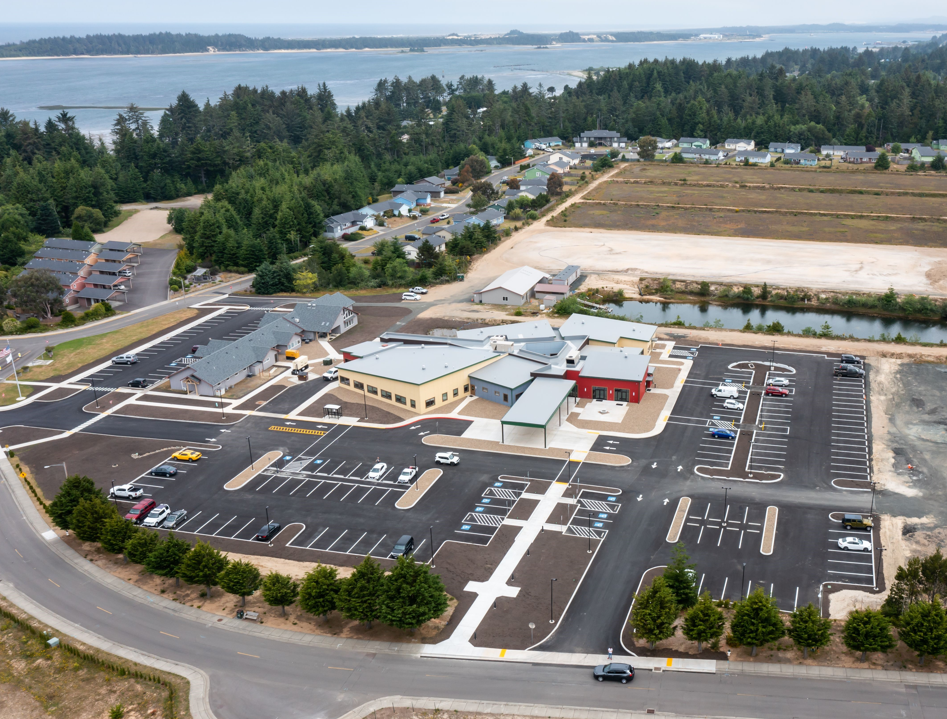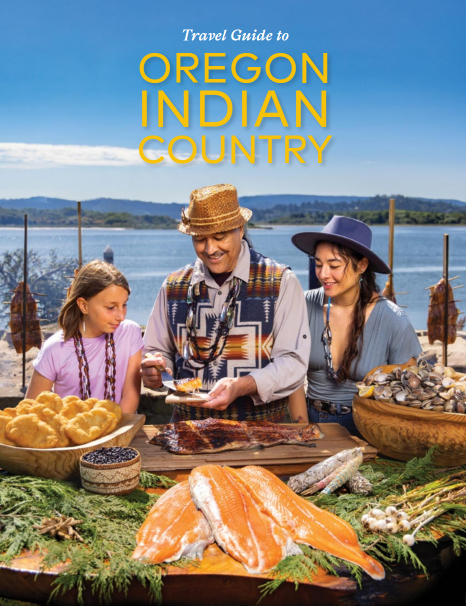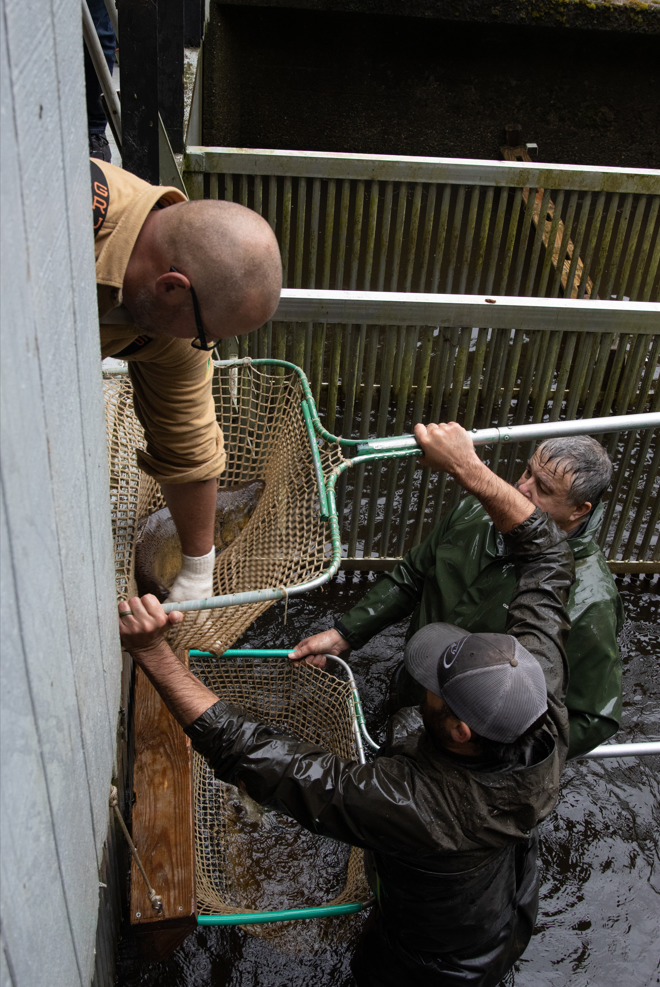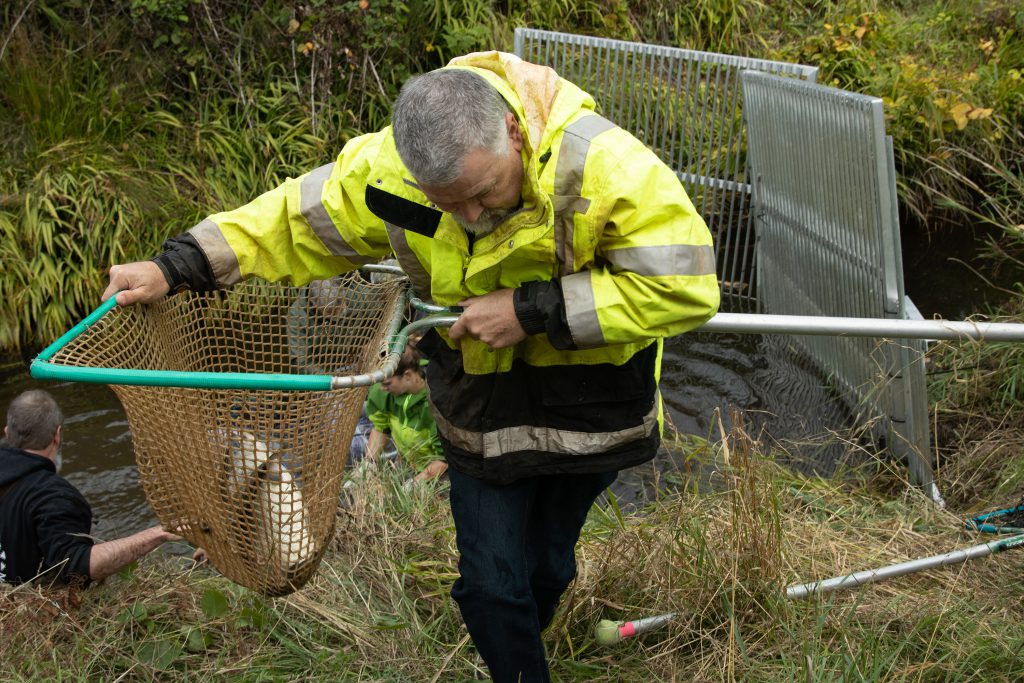The Coquille Indian Tribe is seeking bids for Shishda Haws construction through the bidding website.
Category: News and Notices
Street construction
Bidding opens for intersection project
The Coquille Indian Tribe is seeking bids on an intersection reconstruction project at its Kilkich property near Coos Bay. Bids are due at 2 p.m. April 11.
Chinook salmon in peril
Endangered species listing would have pros and cons
The Coquille Indian Tribe continues is working to protect and restore Chinook salmon, but it hasn’t taken a stance on the possibility of an endangered listing.
Wellness center
Tribe changes the face of Coos Bay medicine

In one rural Oregon community, where doctors are scarce, the Coquille Tribe is providing a vital option.
Community Fund, 2023
Tribe shares $815,000 with local nonprofits
Curry Coastal Pilot, Jan. 16, 2023
Oregon Public Broadcasting, Jan. 11, 2023
KQEN News Radio, Jan. 10, 2023 (Douglas County)
Medford Mail Tribune, Jan. 9, 2023
KDRV, Jan. 9, 2023 (Jackson County)
KTVL, Jan. 9, 1023 (Jackson County)
KVAL, Jan. 9, 2023 (Jackson County)
Tribal Tourism
Travel guide highlights Oregon tribes

Dr. Jason Younker, chief of the Coquille Indian Tribe, and tribal members Matilda ViksneHill (left) and Kiana Younker appear on the travel guide’s cover.
See the story in Portland Monthly
2022 fall Chinook salmon run
Compensation Study RFP
Fall Chinook salmon news
Indigenous Peoples Day, 2022
Coos Bay proclamation
The proclamation of Indigenous Peoples’ Day is a step toward healing, one Coquille Tribal member says.
University of Oregon event
Coquille Tribal Chief Jason Younker and tribal Vice Chair Jon Ivy participated in Indigenous Peoples’ Day activities at the University of Oregon.


